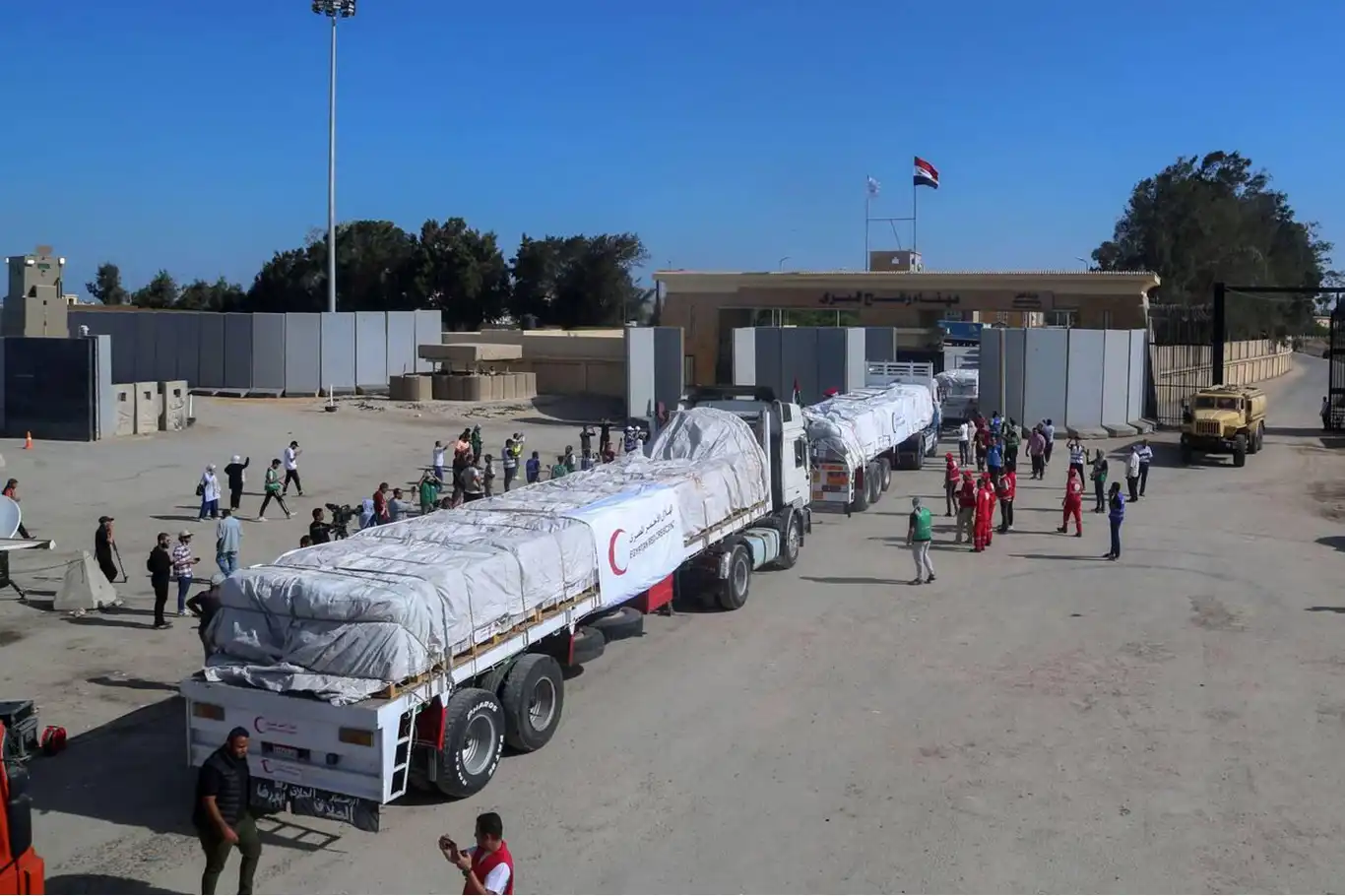Israel blocks Rafah crossing, tightens siege on Gaza despite ceasefire deal


Despite a fragile ceasefire holding across the Gaza Strip, the Israeli government has decided to keep the Rafah crossing closed and restrict the entry of life-saving humanitarian aid — citing the alleged failure of the Palestinian Resistance to return the bodies of all Israeli prisoners killed during the war.
The decision, announced by Israel’s political leadership on Tuesday and reported by multiple Israeli media outlets, is seen by many observers as yet another form of collective punishment against Gaza’s war-ravaged civilian population, who continue to suffer from hunger, displacement, and the near-total collapse of essential services.
Tel Aviv Uses Humanitarian Access as Leverage
According to Israel’s Channel 13, government officials decided to block the reopening of the Rafah crossing — the only entry point for goods and medical supplies from Egypt — and to “significantly limit” humanitarian aid shipments to Gaza. The move reportedly followed recommendations from Israel’s security establishment, which pushed for “pressure” on Hamas until the remaining bodies of Israeli captives are returned.
Israeli state broadcaster KAN similarly reported that the army and intelligence agencies had advised the government to prevent full aid entry until all bodies were repatriated — effectively tying humanitarian relief for millions of Palestinians to political demands.
Four Bodies Transferred under ICRC Supervision
The Palestinian Resistance Movement Hamas, for its part, handed over four bodies of deceased Israeli prisoners to the International Committee of the Red Cross (ICRC) earlier this week, in accordance with the terms of the ceasefire.
According to Maariv, an Israeli security source admitted that the agreement did not specify the exact number of bodies to be handed over in the first stage. Nonetheless, Israeli officials quickly accused Hamas of “stalling,” despite the Resistance having already complied with the initial phase of the exchange.
The Israeli daily Haaretz reported that officials had anticipated a gradual process lasting “weeks,” but internal divisions emerged over whether the current pace should be considered a “breach” or part of normal logistical delays.
Ceasefire Terms and Body Exchange
Under the U.S.-brokered ceasefire deal announced by President Donald Trump last week, Hamas and Israel agreed to a multi-phase prisoner and body exchange. The Resistance would return the bodies of 28 Israeli prisoners in exchange for Israel releasing the remains of Palestinians killed during the 11-month war and thousands of Palestinian detainees held in occupation prisons.
On Tuesday, the ICRC confirmed it had received the bodies of 45 Palestinian prisoners from Israel, transferred via the Kissufim crossing into southern Gaza. The remains were taken to the Nasser Medical Complex in Khan Yunis, where medical teams began documentation and identification before releasing them to their families.
The ICRC called the operation a “tremendous challenge,” noting that the scale of destruction across Gaza makes the recovery and identification of bodies extremely difficult. “In some cases,” said ICRC spokesperson Christian Cardon, “the remains may never be found — this is an even greater challenge than releasing the living.”
Gaza’s Suffering Continues Amid Political Bargaining
Palestinian civil groups and human rights organizations condemned Israel’s continued closure of the Rafah crossing as a direct violation of the ceasefire terms and international humanitarian law. They emphasized that humanitarian access should never be conditioned on political negotiations.
“Israel is using humanitarian aid as a weapon of war,” said one Gaza-based humanitarian worker. “The ceasefire was meant to bring relief, not to impose new punishments.”
With Gaza already facing catastrophic shortages of fuel, medicine, and food, the decision has sparked outrage among aid agencies. The United Nations has warned that more than 1.5 million displaced Palestinians remain without access to adequate shelter, clean water, or medical care.
Ongoing Negotiations and U.S. Pressure
Meanwhile, Israeli envoy Gal Hirsch confirmed that indirect negotiations with Hamas were continuing to locate and recover the remaining bodies of Israeli captives. “We are determined to bring them home,” he said, while reiterating that discussions were held with President Trump during his recent visit to Israel.
The Israeli army later identified four of the recovered bodies, including Israeli citizen Guy Iluz and Nepalese national Bevin Joshi. Twenty-four others, both living and deceased, remain unaccounted for.
The international committee formed under the ceasefire agreement — involving mediators from Qatar, Egypt, and the ICRC — is now tasked with locating burial sites in Gaza and ensuring the exchange proceeds in full.
Despite these efforts, the Israeli government’s latest decision underscores a persistent pattern: using humanitarian blockades to exert political pressure. For Gaza’s exhausted and besieged population, it is another reminder that even in ceasefire, Israel’s occupation policies continue to strangle life and dignity across the Strip. (ILKHA)
LEGAL WARNING: All rights of the published news, photos and videos are reserved by İlke Haber Ajansı Basın Yayın San. Trade A.Ş. Under no circumstances can all or part of the news, photos and videos be used without a written contract or subscription.
European Commission President Ursula von der Leyen said on Tuesday that Bosnia and Herzegovina has made “remarkable progress” on its journey toward European Union (EU) membership and now “stands at the doorstep of the European family.”
Syrian Interim President Ahmed al-Sharaa will travel to Moscow on Wednesday for high-level talks with Russian officials, in a visit that could reshape the future of Syria–Russia relations and define Moscow’s enduring military role in the war-torn country.
The United Nations Office for the Coordination of Humanitarian Affairs (OCHA) reports that nearly 310,000 people have moved from southern to northern Gaza since last Friday, attempting to return to homes devastated by Israeli military operations.